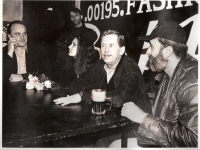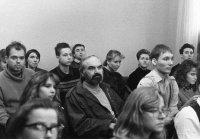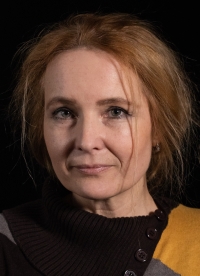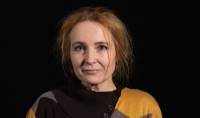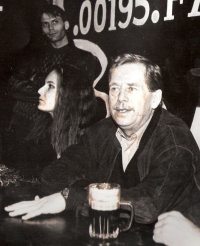At Narodni trida, I felt it was over. That we were all going to be slaughtered

Download image
Journalist, dramaturg and producer Věra Krincvajová was born on 31 March 1969 in Brno. She spent part of her childhood with her family in Libya and from there she sent her first reports to a children’s magazine. After graduating from the Pardubice grammar school, she entered the Faculty of Journalism in Prague in 1987. At that time she experienced the emerging independent student movement. She and her classmates borrowed banned literature, went to anti-regime demonstrations and signed petitions. They began to cross the gap between the grey zone and dissent. In the summer of 1989, they were interrogated by the State Security on a hop brigade for “philosophising in a pub”. In October 1989, Věra Krincvajová and her friend Klára Pospíšilová smuggled a letter to Václav Havel into the Na Františku Hospital, where he was hiding from arrest, and arranged an interview with him for the planned Studentské listy. On 17 November 1989, Věra Krincvajová witnessed the police massacre of a peaceful student demonstration on Národní třída in Prague. She impressively recounts the dramatic moments when she feared for her life, and how she was dragged through the “bloody alley”, i.e. the cordon of officers in the passage to Mikulandská Street, by an unknown rescuer. Shocked by the brutality of the intervention, she and Klara went the very next day to the then communist Prime Minister Ladislav Adamec to show him that they were not “wild elements” but ordinary students. They made him feel the students’ anger, which probably contributed to Adamec’s subsequent decision to negotiate with the opposition.
